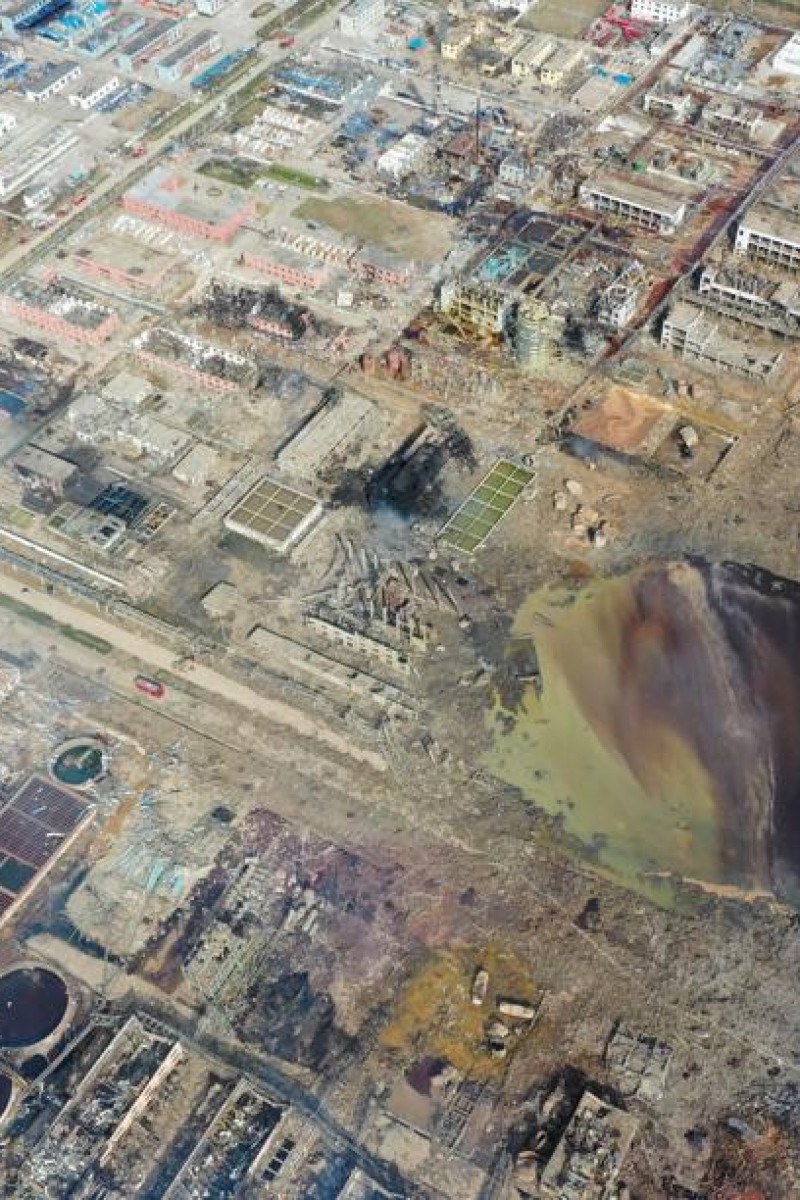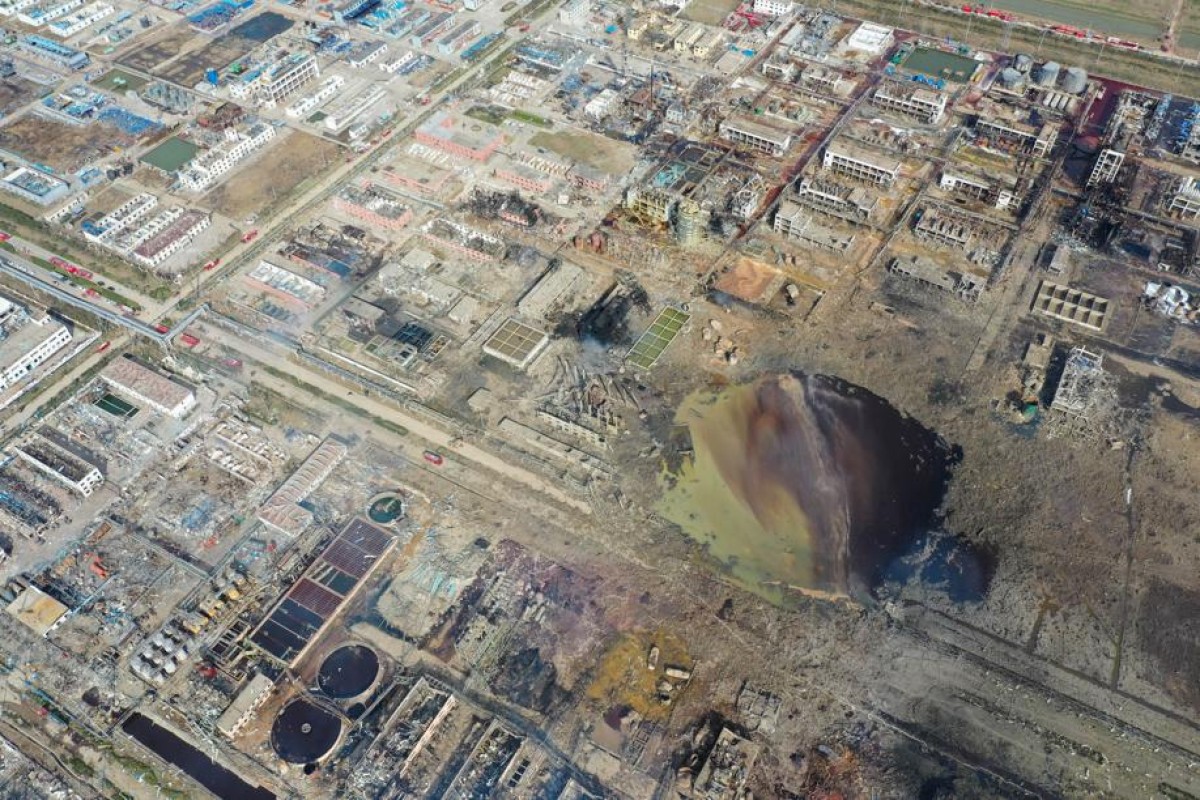
Each week, Young Post takes a story from a top newspaper or news agency, gives you the Young Post version, and shows you how you can use the original to improve your writing, grammar, and vocabulary. The original version of this week’s story in print is from The Washington Post
 The explosion killed at least 78 people and injured more than 600.
The explosion killed at least 78 people and injured more than 600. A deadly chemical explosion has highlighted the mainland’s corruption problem. The blast at the Tianjiayi Chemical Co, in Xiangshui County, Jiangsu province, on March 21 killed at least 78 people and injured more than 600.
The coastal region, once famous for its wheat and rice farms, is now one of China’s major chemical-production centres.
But the search for riches, locals say, has led to polluted rivers, toxic soil, four major explosions in 12 years, and many other smaller accidents.
Residents say they had complained for years about the negligence of the chemical plants just 500 metres away from their village.
Public records show local inspectors found 13 safety violations at Tianjiayi last February. The company was fined at least a half-dozen times over the past five years for improper treatment of hazardous waste.
According to the local government, three industrial parks account for more than 90 per cent of the region’s economy.
But development came at a cost. New factories began dumping and burying toxic waste. When farmers wanted to relocate, they were often denied. Sometimes they were beaten up.
The pollution was so bad that several northern Jiangsu communities became “cancer villages”.
While the authorities were accused of corruption, the chemical producers became richer.
Business leaders such as Zhang Qinyue, the boss of Tianjiayi Chemical, seemed untouchable.
In 2016, Zhang was given a suspended prison sentence of 18 months and fined US$190,000 after being sued for dumping 120 tonnes of industrial waste.
But soon he returned to work.
A factory worker said business owners were friendly with regulators. The owners were usually informed days before inspections took place. “This is about corrupt officials and money,” the worker said.
On March 26, the Xiangshui County government promised affected residents the option to relocate, according to state media. Many were not satisfied with the sum being offered; others admitted it was difficult to move away despite the risks.
One resident said almost every family he knew had already sent their children away to live with relatives. His children had gone, too, but he and some of the neighbourhood men were going to stick around. It’s the only home he’s known.
A woman, who lost her mother in the tragedy, said: “It’s not that there hasn’t been economic benefits, but it’s not worth it. Who dares to live here?”
But amid the ruins the government’s message is still there for all to see.
A red banner fluttering stubbornly against a whitewashed wall reads: “To shake off poverty and get rich is glorious.”
Edited by M. J. Premaratne
You might also like:
China chemical plant explosion kills 47 and injures 640, leaving scores scrambling for medical help
Flammable products you have at home that you didn't realise were dangerous